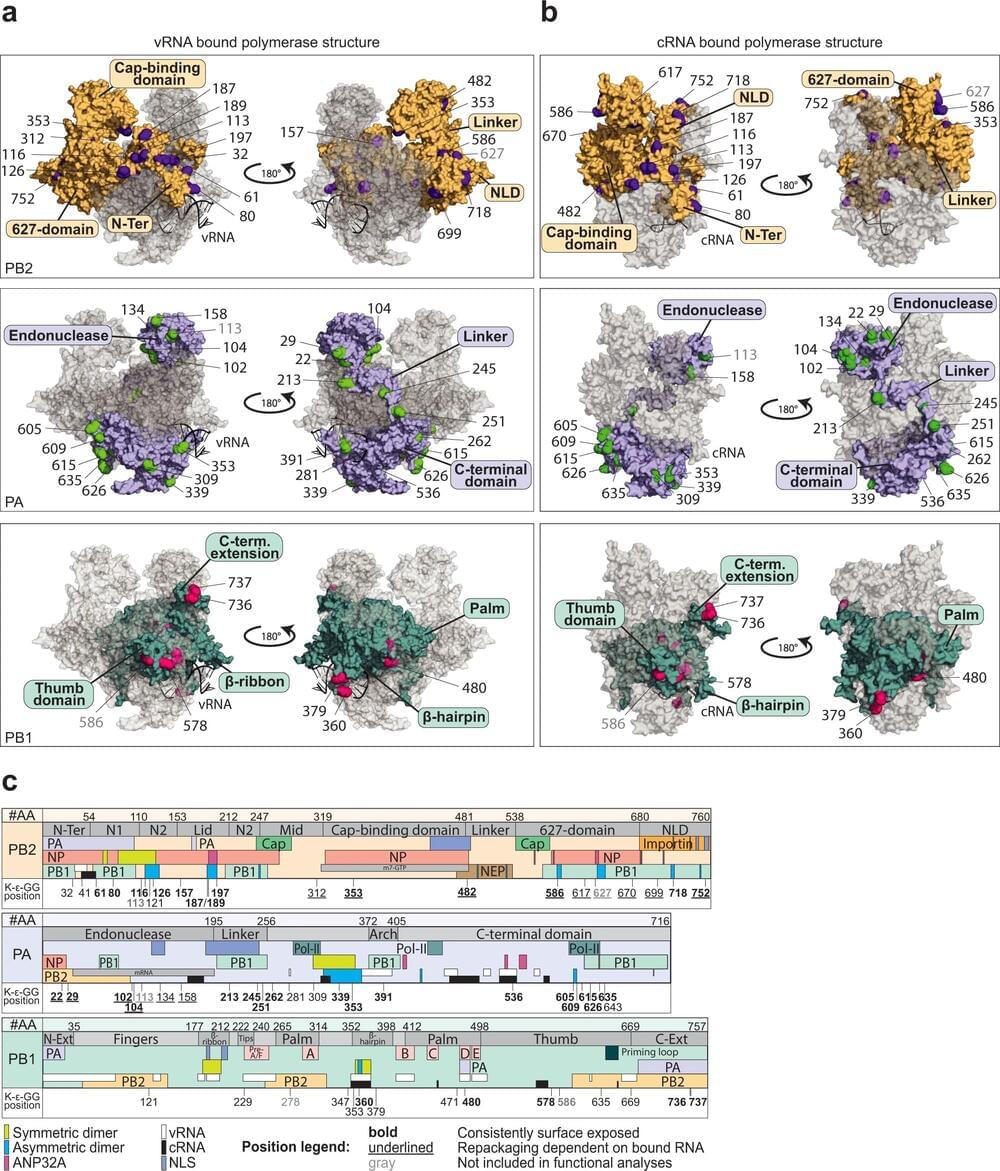Influenza viruses are becoming increasingly resilient to medicines. For this reason, new active ingredients are needed. Important findings in this regard have been provided by researchers at the University of Münster: for the virus to proliferate, the polymerase of the influenza A virus has to be modified many times through enzymes in the host cells.
The team of researchers was able to produce a comprehensive map of the types of modification. Medicines directed against the enzymes would be resilient to rapid mutations in the virus, thus offering great potential for the future. The study results have now been published in the journal Nature Communications.
Every year, the influenza season presents a challenge to hospitals. Despite having been vaccinated, older people and patients with health problems run a heightened risk of falling prey to a severe bout of influenza. What is especially insidious about influenza viruses is their ability to mutate rapidly, which makes them increasingly resilient to medicines. For this reason, there is an urgent need for new active ingredients in order to be able to continue providing effective treatment for the illness in future.
